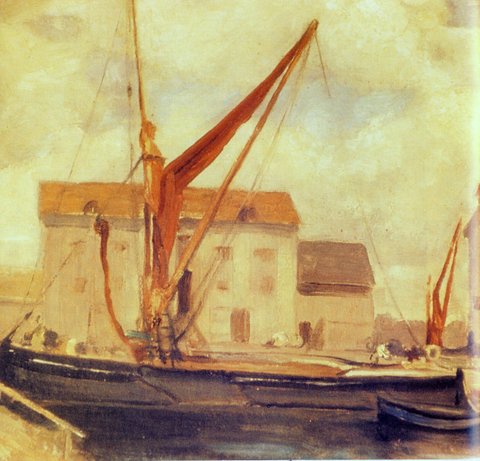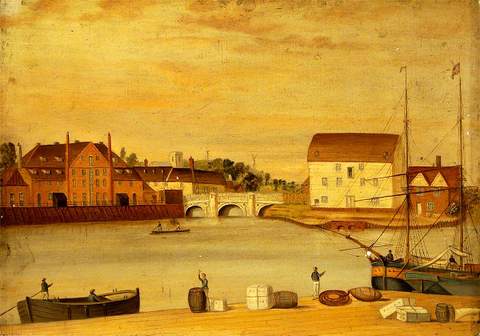DEDHAM, Jacob
As Charles Catchpole, he was born at Nacton, near Ipswich, eldest of the six children of Jonathan Catchpole, horseman farm labourer on a Mr. Denton's farm, and his wife Elizabeth, and was an elder brother of the infamous Margaret Catchpole (1762-1819), who was immortalised by Revd Richard Cobbold (1797-1877) in his fictionalised book of 'The History of Margaret Catchpole'. He is depicted in this account as stealing 'gifts' which had be given to his sister and selling them and becoming idle and not doing his job as a farm labourer but took to carpentry at the sexton's house in Nacton and learned to read & write. After a time, he left the family home and became a pauper inmate of St Mary Elms workhouse, Ipswich and, under the fictitious name of Jacob Dedham, enlisted in the 33rd Regiment of Foot at the Black Horse public house in Black Horse Lane, Ipswich. Shortly afterwards his regiment sailed for the East Indies, another Nacton youth named Calthorpe recognised Catchpole in the Black Horse, otherwise his family would not have known of his departure. 'Dedham' was billeted in Bombay and rose in his regiment and learnt the local languages and customs and was taken note of by Sir William Jones (1746-1794), the Oriental linguist, and spent time in Persia [Iran] and was engaged as a spy, rendering service to 1st Marquis Cornwallis (1738-1805). Jacob married the widow of a Nabob (a person of wealth and prominence), but his patron died in 1805, before Dedham was able to return to England, and owing to suspicions as to his character, he was compelled to depart India, leaving his wife and his wealth behind. On his return to Ipswich, he visited his family at Nacton. paying off some of their debts but was later reduced to the most abject poverty and was found one morning asleep in the porch of St Mary Elms church. From his disgusting appearance, the magistrates refused to believe his account of himself but Ipswich magistrate Edward Bacon, who had some knowledge of India, believed his adventures, and assisted in restoring Jacob’s health and comfort. He also had a talent for drawing and maintained himself by his pencil, and Mr Bacon employed him to take a view of the town, which with others, were in the possession of Revd Richard Cobbold (1797-1877). After living in the town for several years, he proceeded to an unnamed port from where he engaged to work his passage to India to obtain his possessions. He had hardly got on board when he accidentally fell into the hold of the ship and was killed. (Clarke’s - History of Ipswich pp 197-199 - 1830 and Cobbold's - History of Margaret Catchpole)
Works by This Artist

|
View of Stoke in the Town of IpswichPen, ink and watercolour
|

|
Stoke Bridge, IpswichOil on board
|